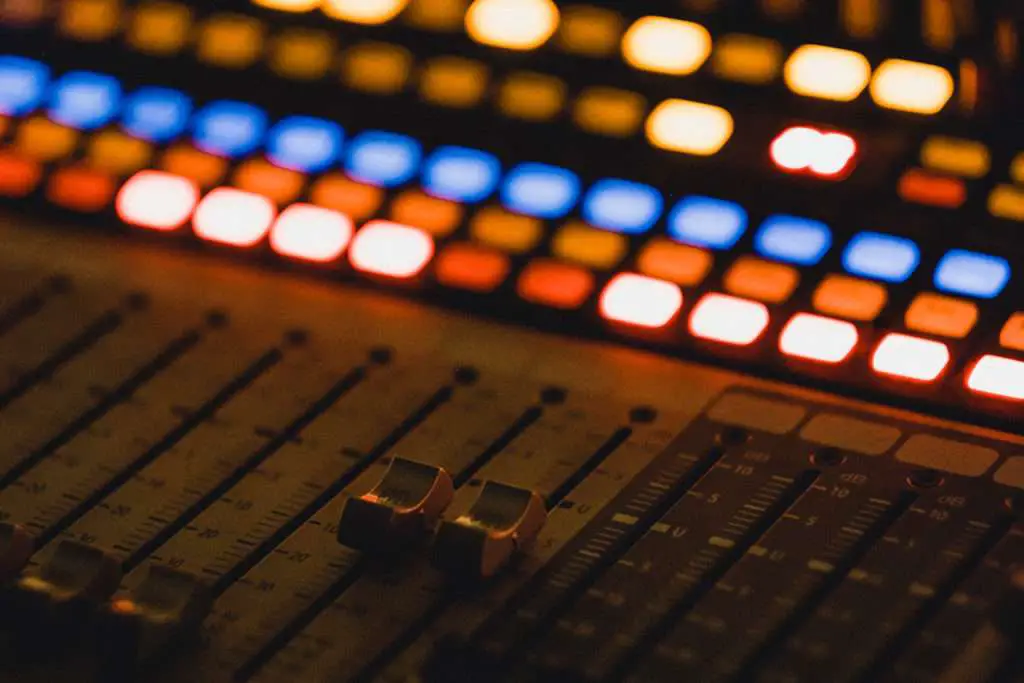
Reverb is one of the most powerful music production tools known for its ability to create space within a mix.
It can be used on a variety of sounds and instruments, but some Kick’s are usually an exception. You don’t need to put reverb on your kicks because it can make them lose punch, grit and most of the frequencies that make the dry signal stand out. However, there are some unique mixing techniques in certain genres that utilize subtle reverb to add some wetness to a kick’s low end. Using reverb on kicks can work well for somebody that knows what their doing. If you haven’t had any experience with reverb on kick drum elements then you’re better off staying clear of this technique and keeping them dry.
Kicks should be of the loudest instruments in any mix, because they have to stand out and guide the whole song. Reverb is great for creating space and making sure sounds don’t sound too dry.
Should you put reverb on everything?
Absolutely not. Elements within a stereo image all serve distinct functions and their place within the scope of the stereo image is different.
Reverb should only be used on specific elements in a selective way because the function of reverb is create space and give depth and not all elements need these attributes.
In mixing, some elements like vocals for example have to be front and center in the mix because they are the main theme.
Certain instruments as well need to be front and center which means reverb should not be used on them because it would defeat the whole purpose. It should fall only on instruments that need a more wet and spacey feel.
Should you put reverb on cymbals?
Reverb on cymbals can really help in taming them. Cymbals tend to have a ringing sound when they’re hit too hard.
This can cause problems within your mix especially in situations where you may have other instruments that could be conflicting with their harsh frequencies.
Overpowering high frequencies can pose a challenge and EQ’ing them too much can make them lose their authenticity. Therefore using reverb can help you create more space for the cymbal and other elements.
How much reverb do you put on a drum?
I’d recommend using a send level of around -10 to -20db to add some depth to your drums. Reverb can also be used to push your drums a little further back into your mix in which case getting a bit closer to -10 dB with your send level can help you achieve this.
Should I put reverb on a snare?
Using reverb on a snare can work to your advantage if you know what you’re doing. When you use reverb on a snare it tends to be more spacey. This can help you if you’re looking to tone down the grit and punch of the snare and give it more room.
On the other hand you can also use reverb on a snare if you wish to make it more airy so it can have a disco club feel.
Another cool technique in which reverb is used on a snare is to create a dry and wet snare signal. In this process you basically use two snares that are layered in too of each other and one of those snares has to have reverb added to it while the other one stays completely dry.
This makes the end result sound dry and wet at the same time which can give your snare a good hard hitting effect with spacey attributes.
Is using reverb cheating?
Reverb as an effect can make the worst sounding dry signal a lot more decent. Other people consider this cheating.
The fact is, using reverb is not cheating because it is simply a tool designed to create a reverberation effect that can cause a signal to sound wet and more spacey. Just as a compressor would control dynamic range in a vocal or an instrument, reverb also serves a different purpose for which it is designed therefore you can’t consider using an effect cheating because the end result it delivers is the very reason for which it is designed.
Should you put reverb on bass?
Reverb should not be used on bass because it is an instrument that is meant to be in the front of the mix.
Bass is the glue that holds the entire mix together, it gives other elements present in the mix an underlying tone that gives them the firm foundation on which they stand and tie together.
It is for this reason that you should avoid using reverb on bass because once reverb is applied, the bass no longer holds the elements together. You simply create another sound floating around your stereo image with no hold or grit.
Is too much reverb bad?
When any effect is used excessively, it can reflect bad on your mix.
Reverb is not any different and this is why it should be used in moderation to avoid any of your sounds being buried deep into your mix unless that is what you’re going for.
In some cases reverb can be used to create a decay effect for instruments or other elements that are meant to subtle. In such cases a lot of reverb will be used.
In a scenario where you simply want to give your element a little space or wetness, using too much reverb can actually harm your overall mix and end up ruining your low end.
Does Reverb make you sound better?
Reverb can be a great way to make your vocals sound better because it can make them less dry and create space for them within the mix.
Producers that have been at it for a long time know that reverb is an important aspect of mixing even if it is used in the most subtle way.